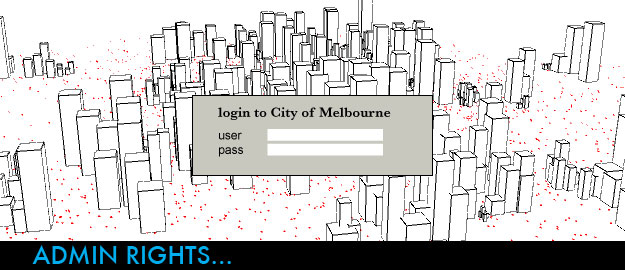When we say data, what do we really mean?
Do we mean just numbers? Do we mean the unending streams of computer code that encode images or sounds? Do we mean the rules that govern how those numbers ebb and flow?
As our research continues, as we’ve been gathering reference points of movement around the city, we’ve been…asked about our processes, about what we are doing, about what we are gathering and why? Most offensively of all, we’ve also been asked if we have the right to gather the data?
The right?
We aren’t entirely sure what this means. In reality, all we are doing is sampling people’s position in the city at regular intervals. Anyone on the street could do the same. The data here is a cloud of seemingly points in 3d space. We could plot it on a screen – and in fact we have – and it would mean nothing to anybody without hours of intensive pattern recognition analysis of our aggregate sets, exploring our thousands of samples, divining them for their patterns.
Is a collection of points in 3d space data? Or is it just noise? Is a collection of samples over time data? Or is it also just noise? Maybe noise is just patterns that take place over timescales we can’t comprehend, or maybe it’s there in pattens that only emerge at a higher dimension or in sequences of time that we can’t perceive. Or perhaps the order finds itself out of the noise.
Regardless, we fail to see the issue.
We are urban codemakers. We make code from the urban environment. That is what we have been invited here to do, so now to have our methods questioned seems…uncharitable. How can the inhabitants of a city hope to improve it if they can’t understand it? A certain amount of work is required, and certain costs need to be paid – nothing is without a price – in order to better understand systems. We must observe, hypothesise, experiment, learn, improve, adapt.
Anything else is a waste of our time.
But, we are nothing if not reasonable, and we are nothing if not open to the opinions of a city’s inhabitants. They are, after all, the source of the data we gather and it would be…uncharitable of us not to at least ask their opinion.
So, here we are, asking for another opinion. The data we are gathering, the ethereal points in a Cartesian space – are they yours? Or do they belong to the city itself? And if either, who has the right to observe them? You, us, the city? Or are you just patterns finding yourself in the chaotic dust of the urban space? And if you are, does it matter what we do?
We will…wait for a response before returning to our mission.
